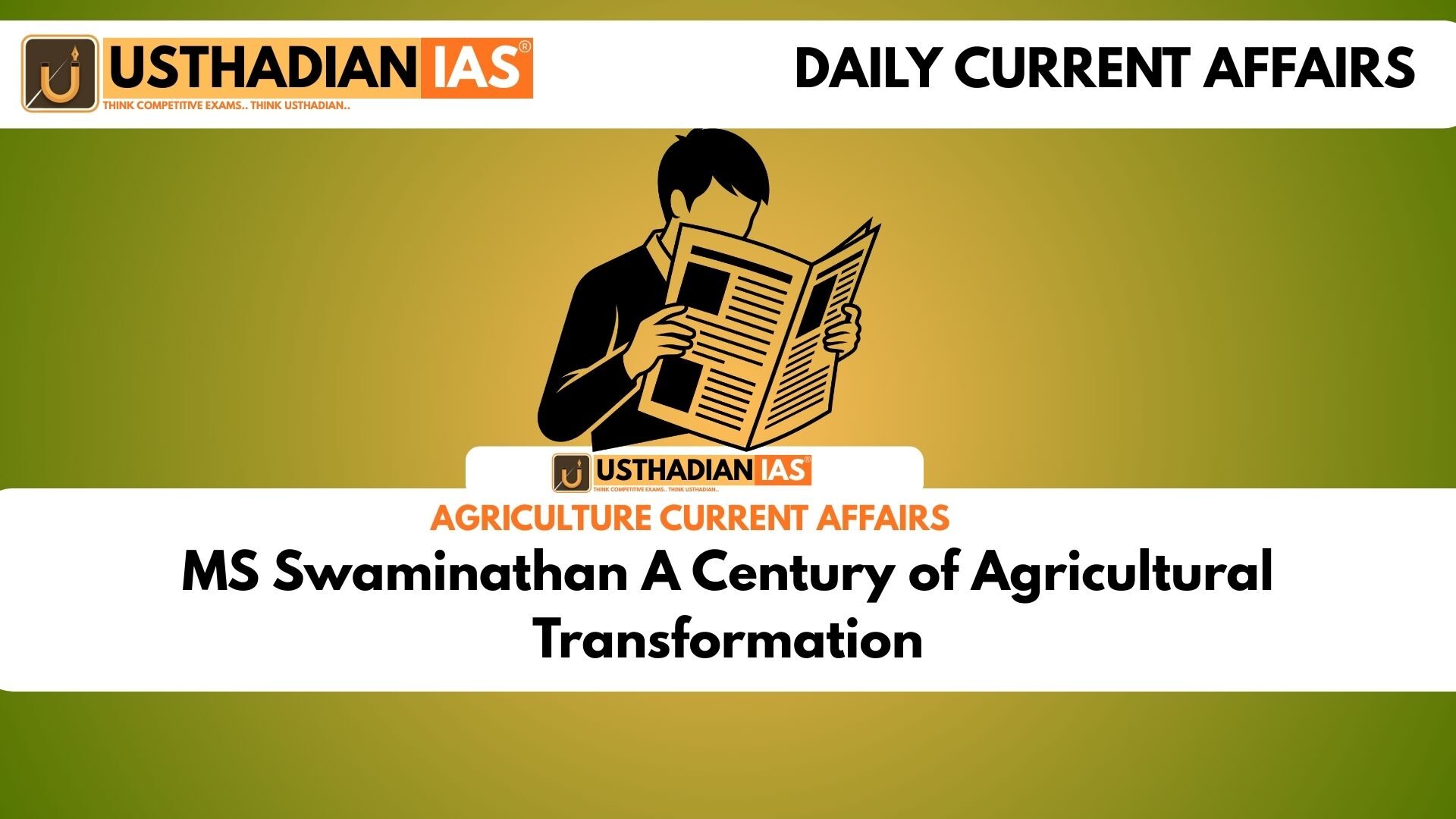Centenary Conference Inauguration
MS Swaminathan A Century of Agricultural Transformation: The Prime Minister inaugurated the MS Swaminathan Centenary International Conference to mark his 100th birth anniversary.
The chosen theme, Evergreen Revolution – The Pathway to Biohappiness, symbolised his mission of combining food security with environmental preservation.
Static GK fact: The Evergreen Revolution focuses on raising agricultural output continuously while protecting the ecosystem.
Life and Recognition
Mankombu Sambasivan Swaminathan (1925–2023) was a pioneering agricultural scientist who redefined India’s farming landscape.
He was honoured with the Ramon Magsaysay Award (1971), the First World Food Prize (1987), UNEP Sasakawa Environment Prize (1994), and the UNESCO Gandhi Gold Medal (1999).
In 2024, he was awarded the Bharat Ratna posthumously for his monumental contribution to Indian agriculture.
Static GK fact: The World Food Prize is considered the most prestigious international award in the field of food and agriculture.
Positions of Global Influence
Swaminathan served as Member of the Planning Commission (1980–82), chaired the UN Commission on Science and Technology for Development, and was Director General of the International Rice Research Institute in the Philippines.
He also founded the M. S. Swaminathan Research Foundation (MSSRF), which focuses on rural prosperity and ecological sustainability.
Game-Changing Contributions to Agriculture
In 1950, he developed frost-resistant potato hybrids and high-yielding rice by crossing indica and japonica strains.
In 1963, alongside Norman Borlaug, he introduced dwarfing genes into wheat, creating shorter, stronger plants with significantly higher yields.
Static GK fact: The Green Revolution began in India during the 1960s, transforming food production and reducing dependence on imports.
Innovative Agricultural Models
He conceptualised Crop Cafeterias, where multiple crop varieties were cultivated together to enhance nutritional diversity.
His Crop Distribution Agronomy technique enabled farmers to switch crop plans midseason for better productivity and quality.
As chairman of the National Commission on Farmers, he presented the Swaminathan Report, which proposed measures to make farming more profitable and sustainable.
Evergreen Revolution Principles
The Evergreen Revolution promotes organic cultivation, integrated pest management, balanced nutrient application, and sustainable resource use.
Initiatives like Village Knowledge Centres provide farmers with region-specific guidance, while Biovillages integrate natural resource conservation with livelihood generation.
Static GK Tip: The Biovillage approach blends agriculture, allied activities, and non-farm enterprises to create stable incomes.
Commitment to Inclusive Growth
Swaminathan consistently championed social equity, economic fairness, and gender equality in agricultural development, ensuring benefits reached all sections of rural society.
Static Usthadian Current Affairs Table
MS Swaminathan A Century of Agricultural Transformation:
| Fact | Detail |
| Birth year of MS Swaminathan | 1925 |
| Year awarded Bharat Ratna | 2024 (posthumous) |
| Known as | Father of the Green Revolution in India |
| Year received First World Food Prize | 1987 |
| Green Revolution start in India | 1960s |
| Centenary conference theme | Evergreen Revolution – The Pathway to Biohappiness |
| Founded organisation | M. S. Swaminathan Research Foundation |
| UNEP Sasakawa Prize year | 1994 |
| UNESCO Gandhi Gold Medal year | 1999 |
| Partner in wheat research | Norman Borlaug |








